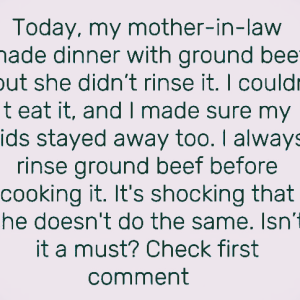Few things in life are definite, something Moeder realized very well when she made the decision to provide her daughter with a financial safety net. Nevertheless, this protective action created unanticipated difficulties in the family. Though it sounds like a reasonable plan to be ready for the unanticipated financial difficulties, there are emotional complexities and miscommunications that can strain family ties.
On an internet forum, a mother related her worries about her daughter’s financial future.
Her three-year married daughter, who just became a mother, has no immediate intentions to go back to work.
The mother worried that her daughter’s financial future remained unknown even if she and her husband had life insurance, particularly in the event that the marriage ended.
The mother was driven to take proactive steps by recollections of another family member’s financial difficulties following divorce, which increased her anxiety.
To the mother, this scenario was not alien.
She had witnessed a relative struggle financially following a divorce even with child support.
Motivated by this example and wanting to shield her kid, she and her husband made the decision to create an emergency fund.
The fund was meant to be a covert security measure, made known only in an emergency.
Diagnosis
The daughter was taken aback by the emergency fund disclosure and was not entirely sure what the motivations were behind this move.
Though grateful, she nevertheless thought the money showed a lack of faith in her marriage.
Her husband learning of the fund further exacerbated these emotions.
This, in his view, indicated mistrust not just of him but also of their marriage’s durability.
The husband felt wounded and deceived, as though the parents of his bride did not think their marriage would last.
Analysis
For the mother, this emergency fund was akin to the prenuptial agreement: a sensible safety measure derived from a realistic attitude to life’s unpredictable nature rather than mistrust.
She said she and her husband would never leave their daughter exposed, just as her son-in-law would want to protect his daughter.
This was a loving, not a distrusting, deed.
The purpose of the fund was to enable their daughter to always make her own decisions free from any financial limitations that could otherwise stand in her way.
The article’s major themes include: “My daughter’s husband is upset because I opened a ‘just in case’ account for her. Her husband stated this… 👣 In brief:
Love and care drove the parents’ emergency fund creation, yet it was interpreted as a sign of mistrust. This highlights the thin line that separates providing protection from eroding couples’ trust.
Inside the family, communication must be honest and open. Conflict and betrayal sentiments might result from misunderstandings regarding intentions. Families must communicate their intentions clearly and pay attention to one another’s emotions.
The Right Mix of Independence and Support Supporting their adult children while yet honoring their independence and decisions is still a difficult balance for many parents. Parents have to be careful not to compromise their kids’ independence while also offering support.
This narrative emphasizes the intricacy of family dynamics and how sometimes well-meaning deeds can have unanticipated repercussion. It offers a peek into the difficulties many families encounter juggling the fine line between independence, love, and support.





